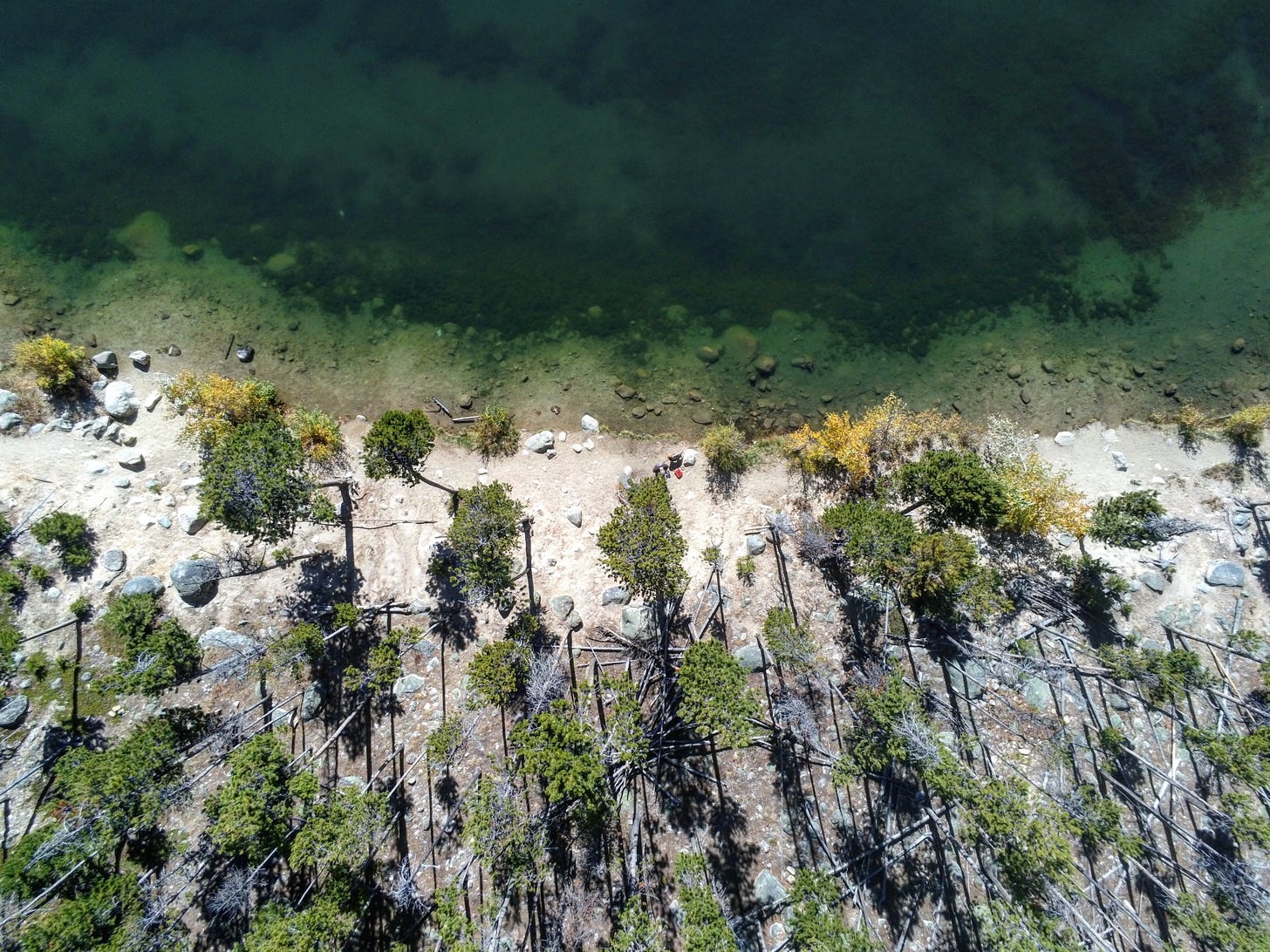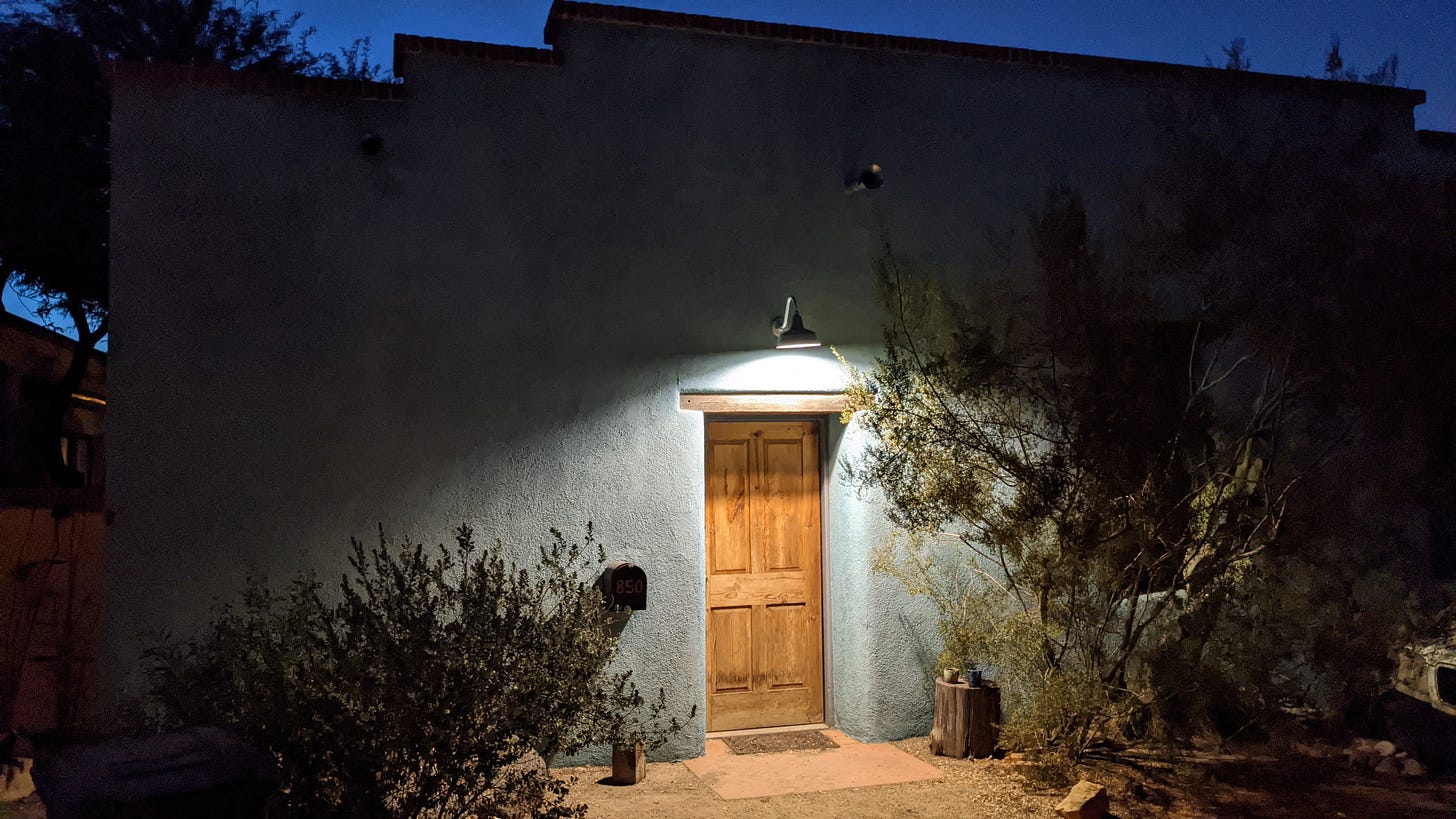The Scattering of the City
Do remote work, nomadism, and disalusion deconstruct cities like collapsed towers of Babel?
A few disconnected anecdotes and statistics came to me lately:
• At the dawn of the industrial age, 90% of employed people were working on farms.
• In 2020, 25% of Airbnb reservations were long term.
• In colonial Oaxaca, the natives kept their homes outside the Spanish-molded city, coming to stay in sort of town homes only for commerce or ceremony. Some still maintain this habit.
The past year, on top of its own preceding years, has looked perhaps very different to different people. For me, what I witnessed was a flight from the urban centers. This was already happening, in my view, for those who had reaped a small fortune. A certain dream existed of getting away from the bustle and starting a simpler life, inspired perhaps by childhood memories, stories from parents or grandparents, depictions in film or literature, or various other origins. This was the story of someone highly skilled, perhaps lucky as well, who felt they could afford to take their career with them somewhere more remote like the semi-desolate, charming towns of my Montana childhood. This could mean remote work, self-employment, or owning a business.
Another segment of society were those forgoing the urban life and it's chance at a highly paid fortune, for whatever reason, in order to live in one of these towns in between. Those who decided to try for a position with the Forest Service, modestly paid at best, or working as a rafting guide, in a retail store, a bar, anything to fund an escape life. Many parents of those born in the in between places did something similar as well.
Bozeman, Montana is a town that has hosted both these groups and more. Go there and you will find students and ski bums, remote workers, independent day traders, fishing and mountain guides, park rangers, artists, photographers, REI employees, sous chefs, and more. The catch, as with any megacity that also has appeal, is that those who cannot generate a significant income are forced out or carrying on in a youthful simplicity that threatens to mature into plain poverty.
I am a strange observer to this pattern. I was born in one of these towns, a less beloved one for many since it is simply not as famed or well located. I left to seek my own fortune, like many others. Nearly all my friends, even my peers in general, left Montana for education and a career. Some stayed, probably better positioned to succeed than the influx of outsiders coming in empty handed. Some returned eventually, while personally I felt I kept one foot in and one foot out for many years, up to now. I went where opportunity took me, i.e. scholarship funds and a military assignment, then, disenchanted with the military as much as that supposedly sweet free world outside of it, I made a nomadic life for myself. It took blind leaps, blind luck, struggle, and perhaps a disconnect from the reality my peers of both youth and military saw from their very different vantage points.
I was fundamentally from a place that some were escaping to, others were escaping from, and that I was simply undecided about. I was the newcomer in other lands, as well: living comfortably in gentrificatia in Buenos Aires or Tbilisi, later in expensive dumps in the USA, then on the road again, Airbnbs, hostels, and always wondering if I should just sit still and move in somewhere like all my friends in their early adult lives. I couldn't really go back to Montana since my remote job could come to an end someday, forcing me to move back out, but had no reason to be in any other place beyond as a curious nomad. Love and life changed it for me.
So I spent summer in Montana, lucky to work remote when I shouldn't have been any longer in another world. And I watched the squeeze of population influx in the beautiful western American landscapes. In winter, somewhere else, the same, with money laden outsiders finding a new home in a ski town while locals howled between themselves (in bars or on local Facebook groups).
All of this brings me back to those opening anecdotes. Me, living for years in somewhat long term Airbnbs, and the affluent migrants doing it now. All these people, fleeing cities, back to the countryside, the railway towns, places where employment was vastly and is still slightly set around farms. And yet, this vision of Oaxaca, where the cities held little meaning in daily life, instead being capitals of trade and religion that were not so important that people uprooted their lives, subordinating any other priority.
In Tbilisi, many of my Georgian friends, even if born in the city, still refer to their "village", and the region where it lies. This is where their surnames and dialects often correspond to, or more correctly, that of their parents and grandparents. They often find themselves traveling back to the village for festivals and holidays, or in escape of summer heat, or when between jobs, when in need of rejuvenation or support. It is much like the American midwesterner who makes the occasional journey from Los Angeles back to Missouri, or the London who occasionally journeys north, toward a fading home. This is easily substituted with other cases, centered on Mexico City, Lagos, Budapest, Singapore, Bangalore, or Bogotá. All these people have a connection to somewhere outside the city, but it also fades with each generation. On top of this, they bring a new identity, as an urban dweller, with then when they revisit the outside world. An city dweller in the village, but a villager in the city.
In 2017, I watched a documentary in a hipster theater in Estonia about the emptying of the villages of Europe. Haunting scenes of green overgrowth on old buildings gave evidence of declining rural populations, with the elderly passing away and the young migrating to urban areas. It was a remorseful piece that yet concluded with some hope of environmental recovery, a return to nature. This is the same world in parts of America, in different context, where mining towns and railroad stops lost their status, due to declining industry, changing tastes, or shifting road systems.
What I do not hear so much of via Europe is a gold rush of these small and rural towns. It has either already happened long ago--property perhaps always being prime in the Alps or the Mediterranean coast--or it is less pronounced because of national borders. Many British moved to sunny Spain, Scandinavians to the Canarías, and migrations to Malta or Greece or Croatia. But many, it seems, having only summer homes, winter cottages, or going all-in only at the ripe age of retirement. I have read about Parisians fleeing during COVID as well, looking to the smaller towns of their ancestors, but it seems less dramatic than in America. Maybe I am just blind and unaware, as I would certainly expect such city to town migrations like in Bozeman and Asheville and Durango exist in the UK or Sweden or France.
I am probably wrong, but that is my point I think: the cities are being emptied in a way the villages might have been emptied in decades past. And this brings forth Oaxaca once more, the model of the city as a transient place, a hot desk. Many cities are like this now, and have been in history, across cultures. The work is done outside the city: the weaving, the tilling, the harvest, the hunting, the crafting. Then the products are brought to the city, perhaps by merchants or by the original creators, to exchange. Meetings happen in the cities, but afterwards all go back home, for many months, rather than returning for more meetings every morning, day after day.
People want this model. Not all people, not a concrete number, but let us say, generally, people like you and I, our neighbors, our coworkers. Many have left the city, not for a kibbutz or a farm, but for something that suited them or their family when suddenly work was untethered to a physical office every weekday. Many may never go back to the office, many may visit only once in awhile for key events. Many will travel to cities for conferences or sporting events, or to get to major international airports, just like an ancient Cappadocian traveling to Smyrna to make passage by sea to North Africa.
Cities are certainly hubs, the urbanization of human life is not the same as politics, culture, and commerce being hosted in a city. Urbanization itself elicits the image of a swirl of water around a drain pipe, the hinterlands, people's homes, being drained not just of talent and skill but of all signs of life. It seems to me as practical for all tech workers to move to the Bay Area as it is practical for all Muslims to move to Mecca--a crazy thought that is very good for anyone renting land, and for the elite who already resided in the center of activity, who have the world come to them. For the rest, best to make the pilgrimage as needed, but no need to abandon a land, to form not just yours but your children's lives around this new place, severing the past.
Indeed, capital cities can often be more symbolic than practical, and perhaps that is best. How many state capitals are also the main economic center? How many national capitals? It varies, and this is worth noting. In the US, Washington, DC is relatively unimportant as a geographic entity, particularly to people who don't work in politics, and to those who live further west. It is certainly not an organic center of American culture the way Edo was to Japan, Bukhara to Central Asia, Innsbruck to Tyrol. It is more akin to Brasilia or Canberra.
Silicon Valley, and San Francisco as an addendum, were perhaps like one of these ancient Silk Road cities at one point. But something shifted, despite this: even if there were or are centers of a certain culture and economy, they are cities, and confidence in cities themselves has declined. The gravity of such a region as center of industry now is at odds with, rather than propelled by, it status as a densifying urban expanse, the place where people crowd together and compete for jobs, rent, relationships, influence, or a place in line. Again, substitute with any city.
Will all our modern cities become museums, where people travel to see what once was? The streetcars of San Francisco and the fish markets of Seattle are spectacles of a time past. Cities like these have diasporas from the heartland of America, perhaps as always, but the heartland also has diasporas from the cities, people who gather for coffee in Bozeman or Tucson to reminisce about the life they left behind on the urban coast. It is all changing, and unclear if, when, or how the dust all will settle.
It is only my perspective that is described here. Others see this in radically different light, and the multitude of objective data also speaks its own story. My own conclusion is that COVID has been a shadow of the age old tale of the Tower of Babel, a tale mirrored in multiple cultures, where our urbanization rocketed toward it's limits only to be batted back, scattering many humans in a way that will not be undone quickly. Going forward, the city, whichever city that is for you, may be better used as a hub, a gateway, a symbol, and a waypoint in a more transient life journey where home is a more deliberate choice than recent memory can recall.











